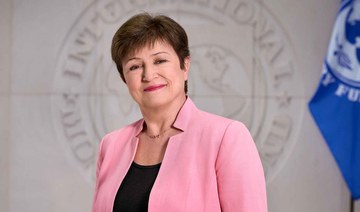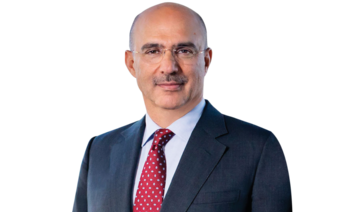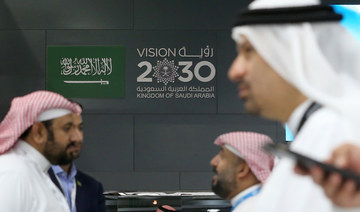WASHINGTON: Major US multinationals are pushing the Trump administration to deepen the tax break it has already tentatively proposed on $2.6 trillion in corporate profits being held offshore, a key piece in Washington’s intricate tax reform puzzle.
As President Donald Trump tries to deliver on his campaign promise to overhaul the tax code, lobbyists for technology, drug and other manufacturers are working with officials behind closed doors, six lobbyists working with various industries told Reuters.
In line with tax cuts already embraced by Republicans in the House of Representatives, the lobbyists said they are telling the White House and Treasury Department that if companies are forced to bring home, or repatriate, foreign earnings, they want a sharply reduced tax rate.
The lobbyists are making an aggressive case that cutting the tax rate on offshore profits to 10 percent from 35 percent, as the administration has indicated it may favor, is not enough.
Rather, the lobbyists said they want a lower, bifurcated rate of 3.5 percent on earnings already invested abroad in illiquid assets, such as factories, and 8.75 percent on cash and liquid assets.
During the 2016 presidential campaign, Trump proposed setting the rate at 10 percent and argued it could be used to raise tax revenue to pay for tax cuts or infrastructure.
Discussion of hard numbers in the long-running repatriation debate may indicate tax reform is advancing on Trump’s slow-moving domestic policy agenda. Or it may just be lobbyists trying to set the early framework for a long slog ahead, which could be adjusted if they get concessions elsewhere.
“For us, it is how you create a tax environment where you give business long-term certainty,” one lobbyist said.
The changes being discussed are part of larger tax reform, another lobbyist said: “Our international tax system is out of whack with the rest of the world. This system is not sustainable.”
The lobbyists’ demands represent the latest effort in a push by corporate America that has been underway since 2004-2005, the last time Washington let multinationals pay only a small fraction of the taxes due on their foreign profits.
Repatriation and comprehensive tax reform are important to the economy, Apple Inc. CEO Tim Cook said earlier this month on CNBC. “The administration ... they are really getting this and want to bring this back and I hope that that comes to pass,” he said. Apple held $239.6 billion of cash and securities offshore as of April 1.
Under current law, US-based corporations are supposed to pay 35-percent income tax on profits worldwide. But companies can defer that tax on active profits left outside the country.
The deferral rule has incentivized multinationals to park profits offshore and about $2.6 trillion in earnings is being held overseas by more than 500 US companies, according to Audit Analytics, a corporate research firm.
Nearly a third of that is held by 10 companies, including Apple, Microsoft Corp., Pfizer Inc. and General Electric Co., the firm said. All four of those companies declined to comment.
These companies and hundreds of others could bring their foreign profits into the US at any time, but they do not in order to avoid paying the 35-percent tax due.
If the $2.6 trillion overseas were repatriated at once, two things would happen. First, Washington would get a big jolt of tax revenue. Second, repatriated profits not collected by the Internal Revenue Service (IRS) could be put to use in the economy.
As the law stands, tax-deferred profits can be held offshore indefinitely. The result of that has been companies biding their time, claiming their profits are “trapped” offshore while lobbying for a repatriation tax cut. The last time they got one was in 2004-2005 under former President George W. Bush, whose administration let multinationals voluntarily repatriate profits at a 5.25 percent tax rate.
At the time, Bush tried to extract promises from companies that they would dedicate repatriated funds to investments in new plants and other job-creating projects.
But in a 2011 follow-up study, a Senate committee concluded the Bush repatriation tax “holiday” cost the Treasury at least $3.3 billion in net revenue over 10 years and “produced no appreciable increase in US jobs or domestic investment.”
Rather, the repatriated funds largely went to shareholder dividends and executive bonuses, the committee said.
The repatriation tax break now being discussed differs from Bush’s: Repatriation would not be voluntary, but mandatory, so foreign profits would have to be brought home.
In addition, lobbyists said they have talked to the administration about ending deferral and exempting foreign profits from taxation. The administration has floated this as an option. Lobbyists said there has been discussion about limiting that exemption to 95 percent of repatriated foreign earnings.
US companies push for lower tax rate on offshore profits
US companies push for lower tax rate on offshore profits
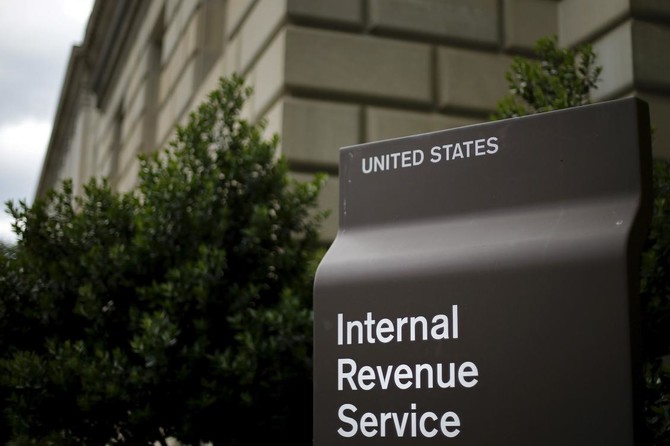
Saudi NHC, Spain’s Urbas to construct almost 600 housing units in Al-Fursan suburb
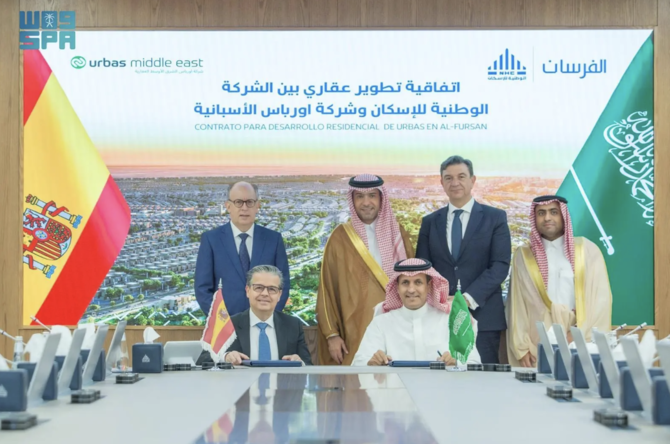
RIYADH: Saudi Arabia’s Al-Fursan suburb will soon be home to 589 new residential units worth around SR1 billion ($266 million) thanks to a deal sealed by the National Housing Co.
Inked with Urbas Middle East Real Estate Co., a subsidiary of the Spanish Urbas Group, the agreement involves the development as well as construction of the housing units on an area spanning 150,000 sq. m, the Saudi Press Agency reported.
This collaboration marks a significant milestone in the development of the Al-Fursan suburb. It also promises to set new standards in property development.
“This agreement complements the efforts of the recent visit to Spain and continues to attract international investments with major companies to provide various housing products that fulfill and meet the desires of citizens,” Saudi Minister of Municipal and Rural Affairs and Housing Majid Al-Hogail said in a post on X.
“As an extension of our journey in attracting the best international experiences and expertise in the real estate development industry, I was pleased to meet the CEO of the Spanish company Urbas, which is planned to be one of the companies developing the Al-Fursan neighborhood project in Riyadh,” Al-Hogail added.
The minister also highlighted how this step will contribute to providing innovative housing options and facilitate the exchange of experiences between Saudi and international developers.
IMF surcharges on borrowings exacerbate global inequities: report
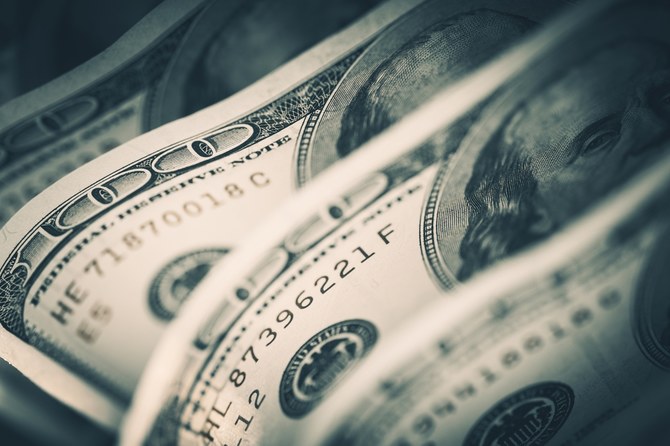
BENGALURU: Countries, mostly middle and lower-income, have been burdened by surcharges on top of interest payments on their borrowings from the International Monetary Fund, widening global inequities, according to a report by US think tanks.
WHY IT’S IMPORTANT
Indebted member countries paid about $6.4 billion in surcharges between 2020-2023, the report from Boston University’s Global Development Policy Center and Columbia University’s Initiative for Policy Dialogue released on Tuesday showed.
And the number of countries paying these surcharges has more than doubled in the last four years.
The IMF is expected to charge an estimated $9.8 billion in surcharges in the next five years, according to an earlier report by the Center for Economic and Policy Research.
Critics of the policy argue that surcharges do not hasten repayment and instead punish countries already struggling with liquidity constraints, increase the risk of debt distress and divert scarce resources that could be used to boost the struggling economies.
BY THE NUMBERS
Countries such as Ukraine, Egypt, Argentina, Barbados and Pakistan pay the most in surcharges, the report showed, accounting for 90 percent of the IMF’s surcharge revenues.
These surcharges, levied on top of the fund’s increasingly steeper basic rate, are IMF’s single largest source of revenue, accounting for 50 percent of total revenue in 2023.
KEY QUOTES
“IMF surcharges are inherently pro-cyclical as they increase debt service payments when a borrowing country is most need of emergency financing," Global Development Policy Center’s Director Kevin Gallagher said.
“Increasing surcharges and global shocks are compounding the economic pressure on vulnerable countries.”
CONTEXT
Data published by the Institute of International Finance earlier this year showed global debt levels hit a record of $313 trillion in 2023, while the debt-to-GDP ratio — a reading indicating a country’s ability to pay back debts — across emerging economies also scaled fresh peaks.
IMF shareholders agreed last week on the importance of addressing challenges faced by low-income countries, Managing Director Kristalina Georgieva said on Friday.
China’s wealth fund joins with Bahrain’s Investcorp for $1bn Middle East investment
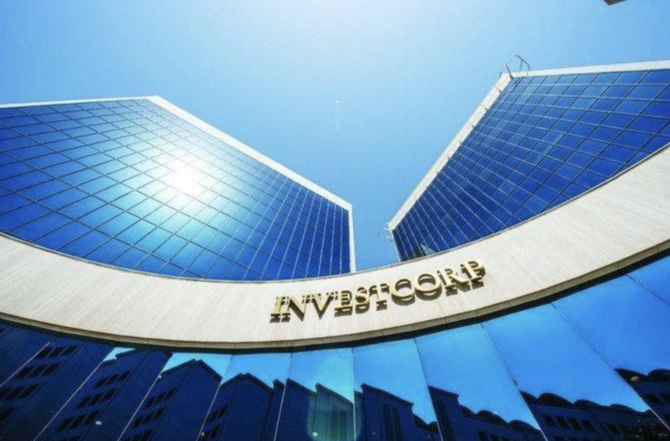
RIYADH: China’s growing interest in the Middle East continues as the country’s sovereign wealth fund partnered with Bahrain’s Investcorp to establish a $1 billion investment pot.
According to a press statement, Investcorp Golden Horizon fund will assist companies across Saudi Arabia, the wider Gulf Cooperation Council region and China.
The reserve will be anchored by reputable institutional and private investors from the GCC, as well as China Investment Corp.
The press statement revealed that target companies are expected to have high growth potential in sectors including consumer, health care, logistics and business services.
“During the past couple of years, we have built several bilateral funds with leading financial institutions to facilitate industrial cooperation between China and major economies in the world,” said Bin Qi, executive vice president and chief information officer at CIC.
He added: “Currently, we are working closely with Investcorp to build a similar bilateral fund to strengthen financial and industrial ties between China and GCC countries.”
This commitment from CIC comes when the GCC’s appeal to institutional investors is gathering pace, thanks to its stable regulatory environment and pro-business policies, driven by economic diversification efforts in the region and strategic privatization mandates.
“This commitment by CIC, one of the world’s largest sovereign wealth funds, is a testament to Investcorp’s unparalleled franchise in the GCC and reinforces the trust placed in the firm’s global platform and teams. We are looking forward to building on this relationship and growing our partnership in the future,” said Mohammed Al-Ardhi, executive chairman of Investcorp.
Co-CEO of Investcorp Hazem Ben-Gacem said the launch of the new fund will facilitate cross-border cooperation and investments between the GCC and China.
Trade and economic relationships between the Middle East and China have always been strong.
In 2023, China’s exports to Saudi Arabia and the UAE amounted to $42.86 billion and $55.68 billion respectively.
On the other hand, the Asian giant’s imports from Saudi Arabia totaled $64.36 billion in 2023.
In November, Saudi Arabia’s central bank, also known as SAMA, and the People’s Bank of China signed a local currency swap agreement worth $6.93 billion.
SAMA, in a statement, said that the three-year agreement “has been established in the context of financial cooperation between the Saudi Central Bank and the People’s Bank of China.”
The Asian country’s central bank said that the agreement will help strengthen financial cooperation between Saudi Arabia and China, promote the use of local currencies, and strengthen trade and investments between nations.
Oil Updates – crude steady as market weighs US demand concerns, Middle East conflict risks
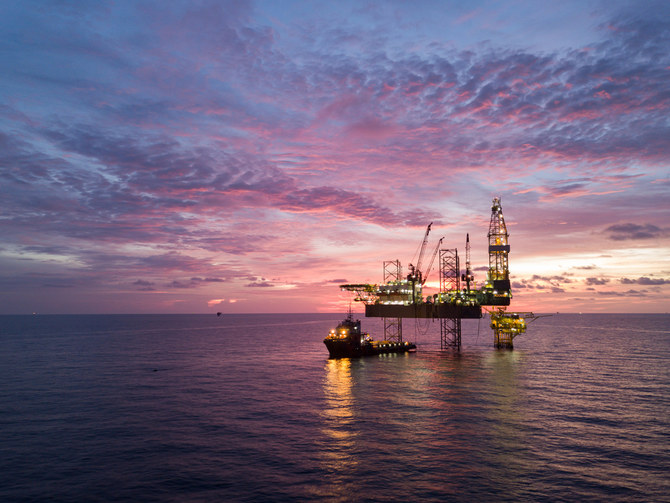
SINGAPORE: Oil prices steadied on Thursday after settling lower in the previous day, as signs of retreating fuel demand in the US, the world’s biggest oil user, contended with widening conflict risks in the key Middle East producing region, according to Reuters.
Brent crude futures inched up 18 cents, or 0.2 percent, to $88.20 a barrel at 9:30 a.m. Saudi time, while US West Texas Intermediate crude futures gained 13 cents, or 0.2 percent, to $82.94 a barrel.
Data from the US Energy Information Administration on Wednesday showed that gasoline stockpiles fell less than forecast while distillate stockpiles rose against expectations of a decline, reflecting signs of slowing demand.
The falling fuel demand is occurring amid signs of cooling US business activity in April and as stronger-than-expected inflation and employment data means the US Federal Reserve is more likely to delay expected interest rate cuts, weighing on economic sentiment.
“The current weakness in benchmark prices, after testing above $90 (a barrel) levels, is due to market sentiment refocusing on global economic headwinds over geopolitical tensions,” said Emril Jamil, senior oil analyst at LSEG Oil Research.
Geopolitics aside, prices this quarter will be driven by factors including major producer supply cuts, economic data out of China and Eurozone, on top of incremental demand expectations as the Northern Hemisphere heads into summer amid expected tighter supply, said Jamil.
A better indication of the Fed’s rate intentions will be seen after US gross domestic product and March personal consumption expenditure data is released on Thursday and Friday.
Meanwhile, fighting in the Gaza Strip between Israel and Hamas is expected to expand as Israel may start an assault on Rafah, in the enclave’s south, which may increase the risk of a wider war that could potentially disrupt oil supplies.
However, there have been no other signs of direct conflict between Israel and Hamas-backer Iran, a major oil producer, since last week.
“Tensions between Iran and Israel have eased, but Israeli attacks on Gaza are expected to worsen, and the risk of conflicts spreading to neighboring countries is underpinning oil prices,” said Toshitaka Tazawa, an analyst at Fujitomi Securities Co. Ltd.
Other EIA data on Wednesday showed that crude stocks slumped by 6.4 million barrels to 453.6 million barrels, compared with expectations in a Reuters poll for an 825,000-barrel rise.
How Vision 2030 is transforming Saudi Arabia into a globally competitive economy

- From efficiency and economic performance to infrastructure and cybersecurity, the Kingdom is a desirable place to do business
- Strides in transport, logistics and financial markets have boosted the Kingdom’s global competitiveness
RIYADH: What extraordinary feats did Saudi Arabia accomplish to see itself ranked ahead of China, Germany and the UK on a global measure of economic competitiveness?
On its eighth anniversary, Saudi Vision 2030 has reached several remarkable milestones and made steady progress since its inception by Crown Prince Mohammed bin Salman, revealing a transformative journey that continues to reshape the Kingdom’s future.
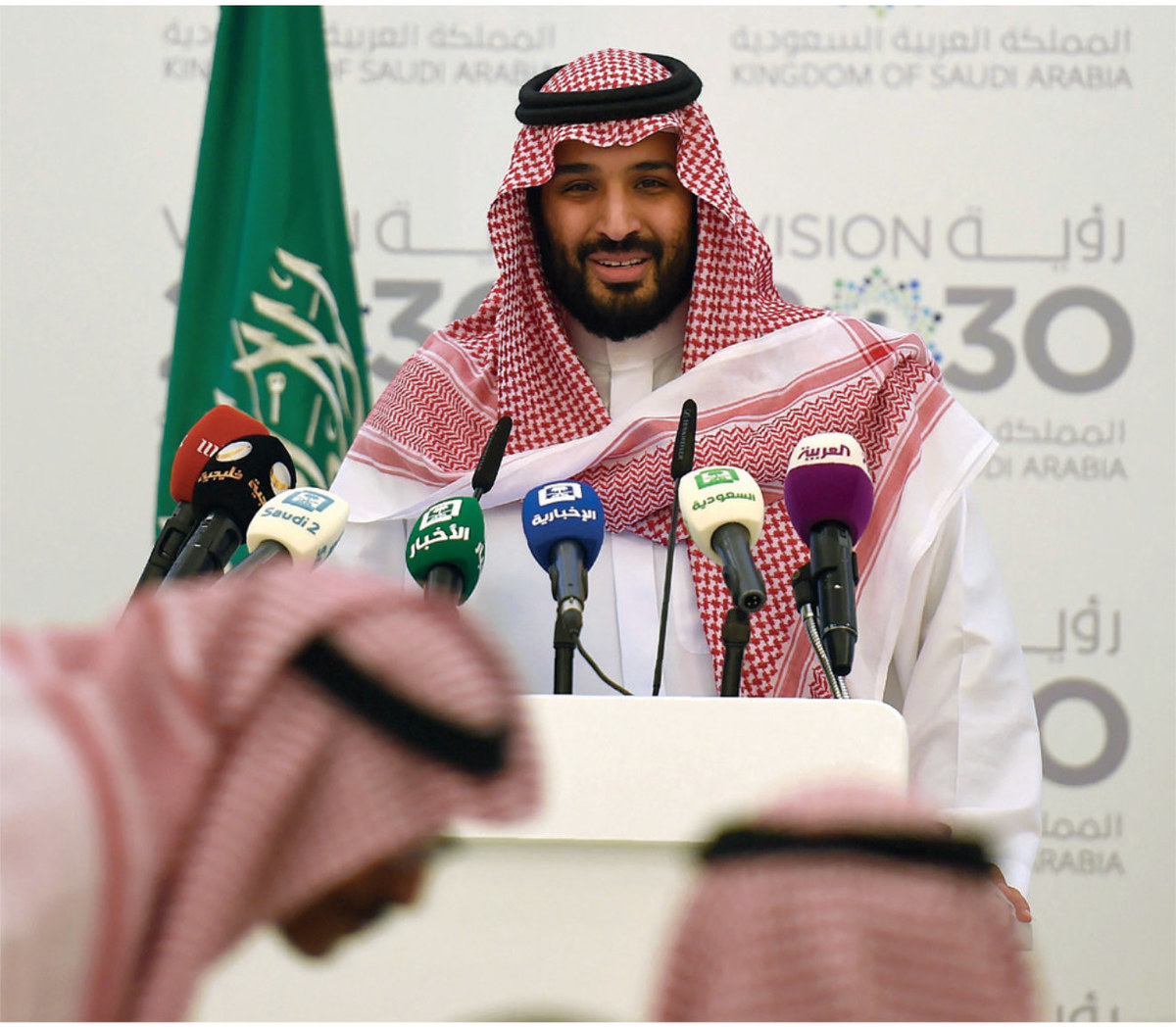
“It is an ambitious yet achievable blueprint, which expresses our long-term goals and expectations and reflects our country’s strengths and capabilities,” the crown prince said at Vision 2030’s launch in 2016.
“All success stories start with a vision and successful visions are based on strong pillars.”
According to a competitiveness report by the Swiss-based International Institute for Management Development, the Kingdom ranks third among G20 nations on this metric, and 17th among all countries.
Just what are the achievements the Kingdom has made to secure this high global ranking among competitive countries?
According to the latest annual Vision 2030 bulletin, Saudi Arabia achieved significant progress in four competitiveness factors evaluated in the report.
It leaped to sixth place in economic performance, advanced to 11th in government efficiency and 13th in business efficiency, while holding steady at 34th in infrastructure ranking.
Other performances include that the Kingdom is third among G20 countries, fifth globally in the financial market index, and second in the cybersecurity indicator.
PIF: An investment powerhouse
As the most crucial driver of economic diversification and the revitalization of vital sectors, the Public Investment Fund possesses leading investment portfolios.
These are designed to direct investments toward diversifying the economy, developing infrastructure, stimulating innovation, and strengthening global economic ties.
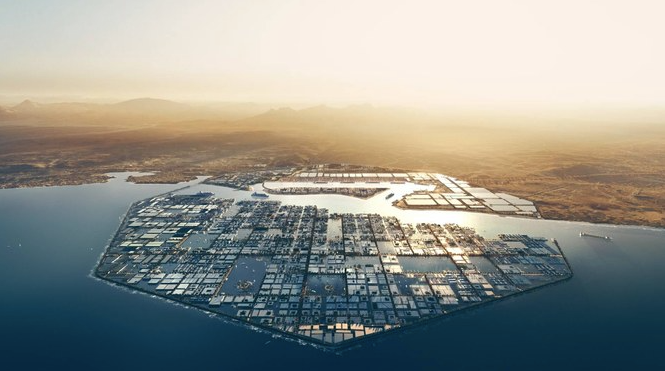
The fund has broadened its portfolio to encompass promising sectors with significant growth potential, covering everything from tourism and entertainment to financial technology, gaming, and sports.
Its investment competence has swiftly increased, positioning PIF as a global leader in capitalizing on economic opportunities at both national and international levels.
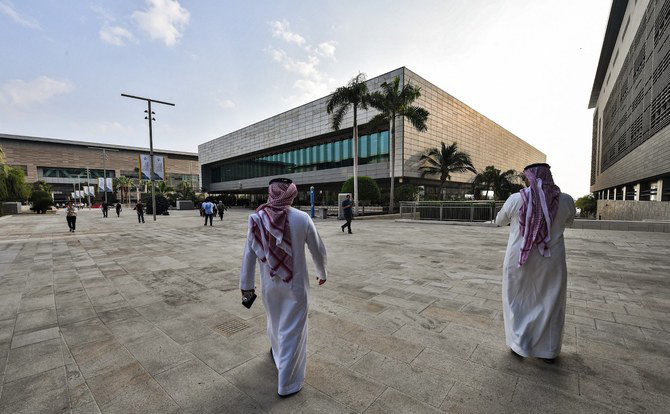
Transport infrastructure
The transportation sector is crucial for sustainable development and plays a key role in improving safety by enhancing roads and implementing advanced transportation systems.
These efforts help reduce road accidents, injuries, and fatalities, creating a safer environment and boosting overall quality of life — all part of the goals of the National Transport Strategy, within the framework of Vision 2030.
The report outlined traffic safety indicators and highlighted that the road fatality rate dropped from 28.8 per 100,000 people in 2016 to 13.3 by 2022.
It also noted that the injury rate fell to 71.67 injuries per 100,000 individuals in 2022.
Competitive financial market
Saudi Arabia’s financial market has experienced significant growth and activity since Vision 2030 was announced, demonstrating the strength and robustness of the Kingdom’s financial sector.
The Kingdom was ranked fifth globally — and third among G20 countries — in the Financial Markets Index, according to the 2023 International Competitiveness Yearbook by the World Competitiveness Center.
The number of financial technology entities in 2023 reached 216, far exceeding the target of 150. This indicates rapid growth and development in the financial technology sector.
Furthermore, the number of listings in the financial market for 2023 reached 43, surpassing the target of 24, indicating increased interest from companies to list on the market.
This growth is a positive sign of investor confidence and the attractiveness of the market for public offerings, as the total number of listed companies is now 310, indicating a diverse and extensive market.
A high percentage of micro and small enterprises listed on the market, at 76.7 percent compared to the target of 44 percent, demonstrates that even smaller businesses are finding opportunities to go public, according to the report.
Saudi Arabia’s story of transformation has many authors, including the government, Saudi citizens, the private sector, and international partners.
In 2023, their combined efforts made Saudi Arabia an even better place to live, work, and visit.
Together, they are writing the next chapter in 2024 — a year of unrivaled opportunity for the Kingdom and anyone who wants to be part of the story.




